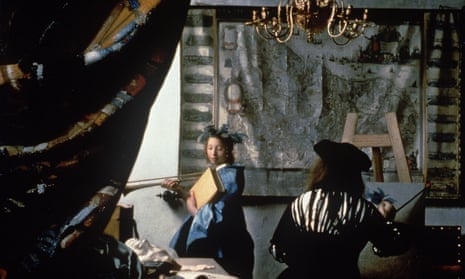Where to begin with Dutch literature? Any reasonably outward-looking British reader can reel off a list of French, Spanish, Italian and Scandinavian writers, classic and contemporary. German, too, though they’re more likely to be from the last century than this one. But Dutch? It is a strange gap in our cultural knowledge of Europe.
The lack is surprising when you consider how similar the Dutch and British national types are. Granted, Herman Koch’s The Dinner was a big international hit in 2009, with its public evisceration of a supposedly happy family, and Gerbrand Bakker won the International IMPAC Dublin literary award in 2010 with his debut, The Twin. And then there’s Cees Nooteboom, now in his 80s, who has entered the rarefied upper atmosphere of “being mentioned as a Nobel candidate”. But those were the Dutch authors I could name … until the appearance of The Penguin Book of Dutch Short Stories.
This hugely welcome anthology does us the double favour of introducing us to 36 writers, living and dead, that we probably haven’t heard of and goes some way to explaining why we haven’t. This is thanks to an excellent introduction by its editor Joost Zwagerman. He, I was saddened to discover on reading his own biographical entry at the front of the book, killed himself before it reached publication.
The reason we don’t know Dutch literature over here, according to Zwagerman, is because they barely know it themselves. The Dutch language has been in such constant flux over the past few centuries, he writes, that “many great works of 17th- and 18th- and 19th-century Dutch literature have to be translated into modern Dutch to make them accessible to the average reader”. Laurence Sterne? Jane Austen? Charlotte Brontë ? Imagine them all lost to us!
It’s no surprise, then, that Zwagerman starts his selection barely more than a century ago, in 1918. Young Titans, by the pseudonymous Nescio, finally found its way into English in 2012. Zwagerman lauds Nescio’s story – about a group of idealistic young men acclimatising more and less well to the world of work – for its lyricism, and for its reversal of the general view of the Dutch as level-headed and hardworking – and not much more.
It is also inescapably melancholic. I’d be lying if I said this collection presents Dutch writing as a laugh riot. Where there is humour, it is of the wry and dark variety, as in Nicolaas Matsier’s The Minnema Variations, a story about a minor literary journal editor who is plagued by endless submissions from a doomed – and, frankly, terrible – poet. It’s funny like Herman Melville’s Bartleby, the Scrivener is funny: endlessly, until you realise how unpleasantly close to home it feels.
There is much weirdness to be found in the Dutch national literature; among my favourites are tales of a man challenged to eat fresh dog excrement in order to win himself the keys to a canalside house, and a journalist spending a day out in the field with a ruminative muskrat catcher. In the end, though, what’s so rewarding is how it presents us the Dutch and British characters as essentially similar. So too are the two languages, linguistically speaking, when you factor out the very prickly matter of pronunciation. Like us, this is a nation governed by rationality, with a vision of classlessness at its heart. Like us, they see themselves as a sensible compromise between Latin fervour and German dourness. No doubt in part thanks to excellent translations, many Dutch stories and books feel close, sometimes uncannily so. Most of them could quite easily be set in the UK – in fact, Marcel Möring’s East Bergholt actually is, and Gerbrand Bakker’s The Detour is set in Snowdonia. The characters have a familiar strangeness about them. For that, we should be grateful – and should not rest until we have more Dutch writing heading our way.
- Dutch writers, including Herman Koch, Esther Gerritsen and Joost De Vries will be appearing at the Tabernacle in London on 17 January.

Comments (…)
Sign in or create your Guardian account to join the discussion